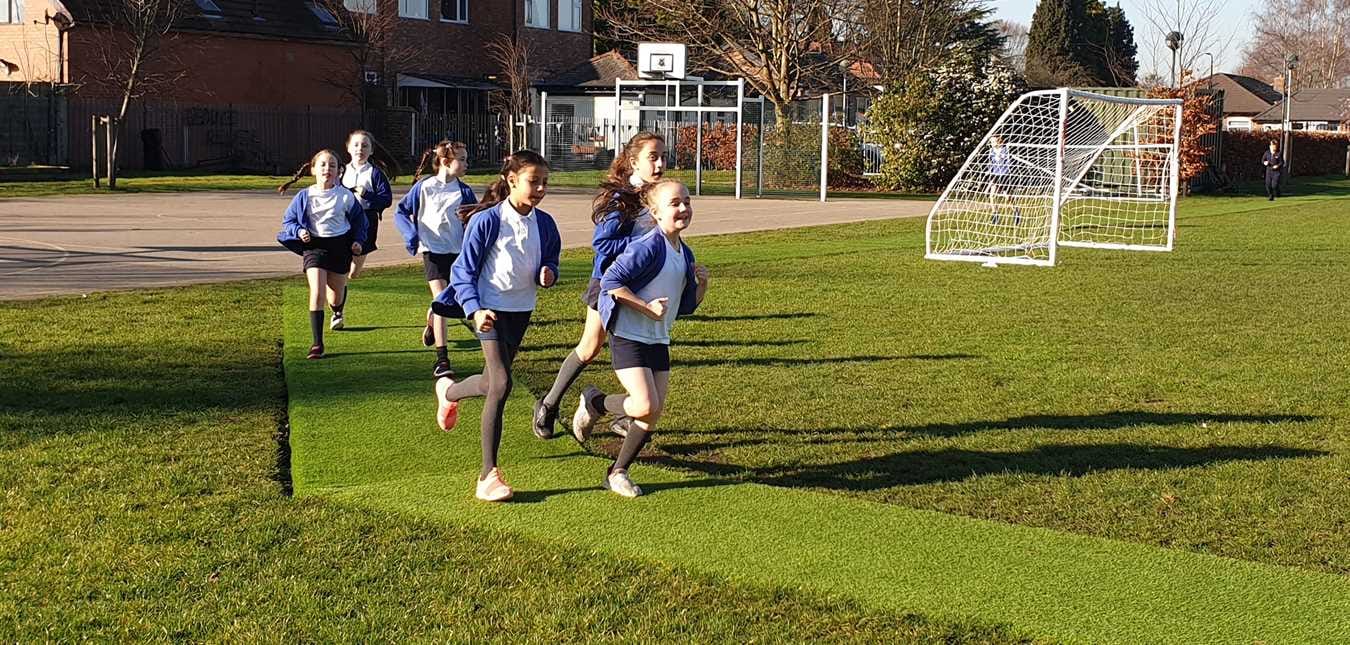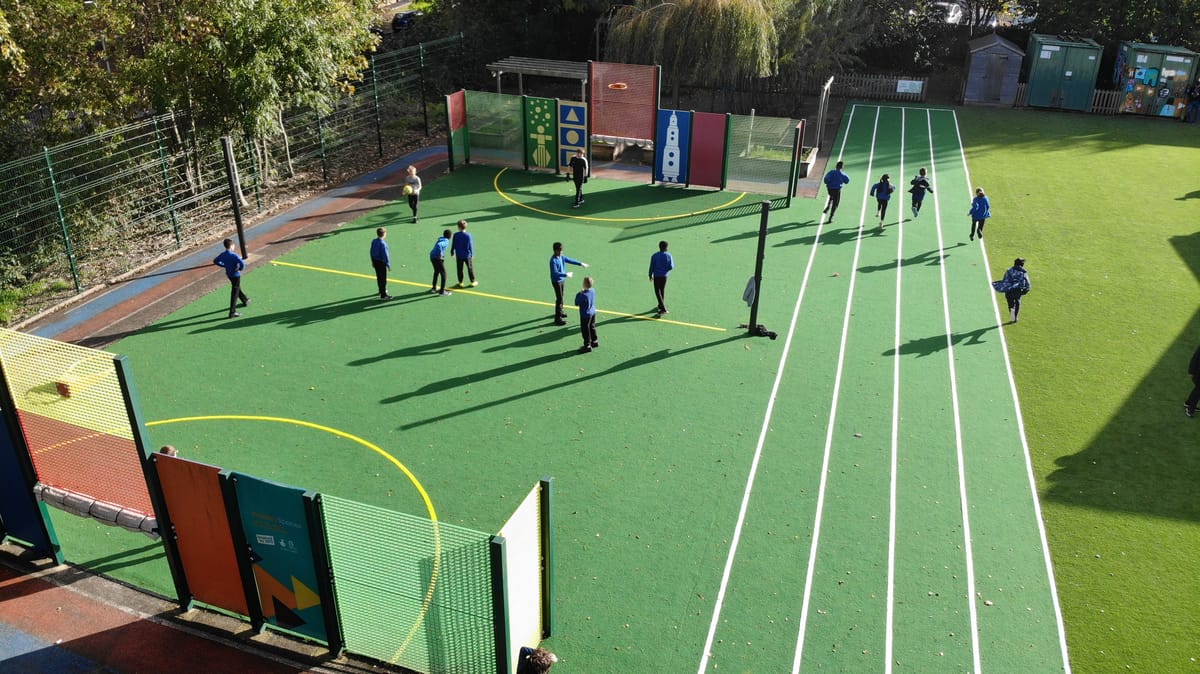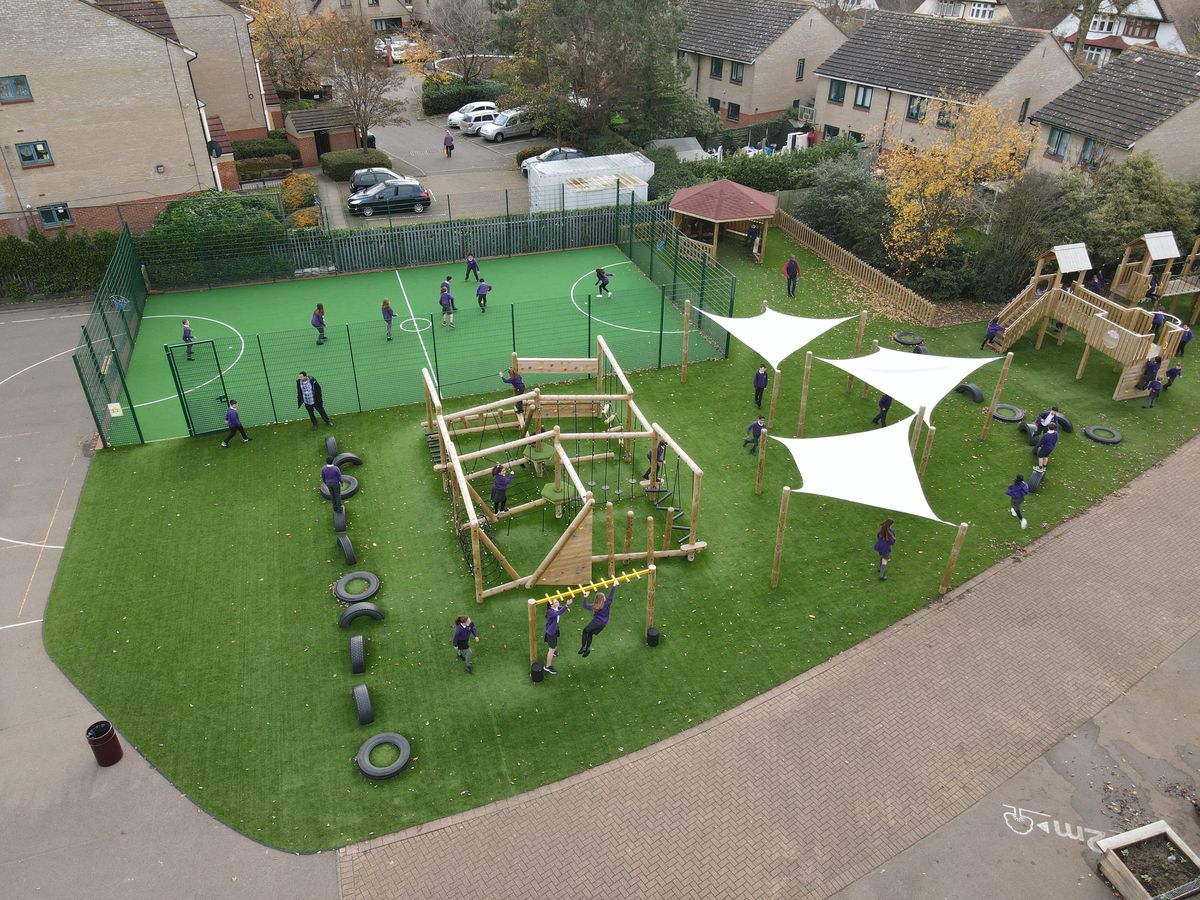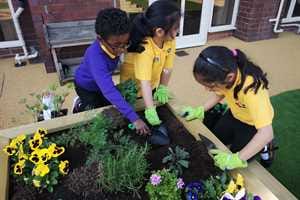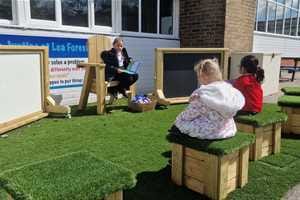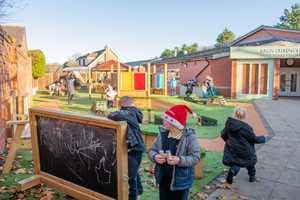
Outdoor Learning and Play
8 Top Tips for a Successful School Sports Day!
It’s getting close to that time of year again were many schools are approaching their annual school Sports Day. Encouraging a love of sport and fitness is a key priority for us here at Pentagon Play.
A well-planned school Sports Day can help to foster lifelong habits whilst also promoting a sense of fun and achievement. Sports Day not only boosts physical health but also nurtures teamwork, personal growth and a desire to participate in active play.
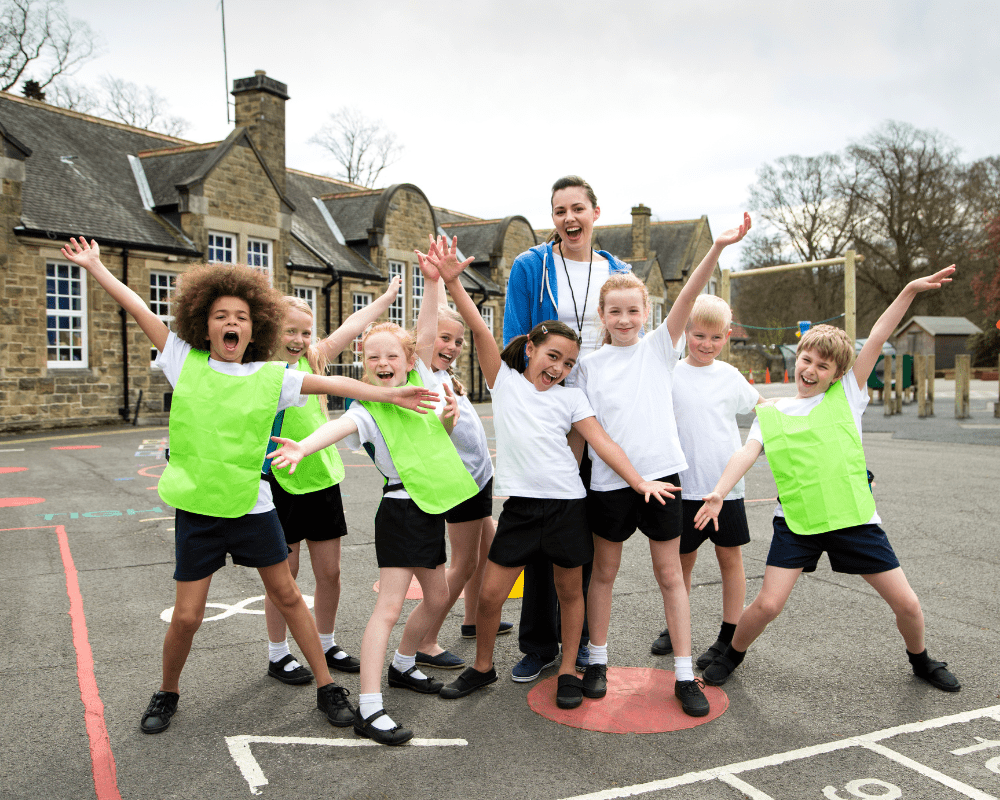
Sports Day provides an opportunity for the whole school community to gather together to enjoy taking part in a range of different events. Teams will be formed; classmates will cheer each other on and students will be given a chance to shine!
Schools may approach Sports Day differently whether competitive, cooperative, traditional or themed. Yet, all schools holding a Sports Day are promoting the importance of physical education, sport and play in childhood.
This blog will help when planning a memorable School Sports Day in which all children are included.
1. Organisation and Preparation
Sports Day is usually marked on the school calendar far in advance so that all families and volunteers can attend. A reserve date is usually a good idea thanks to the unreliable Great British weather!
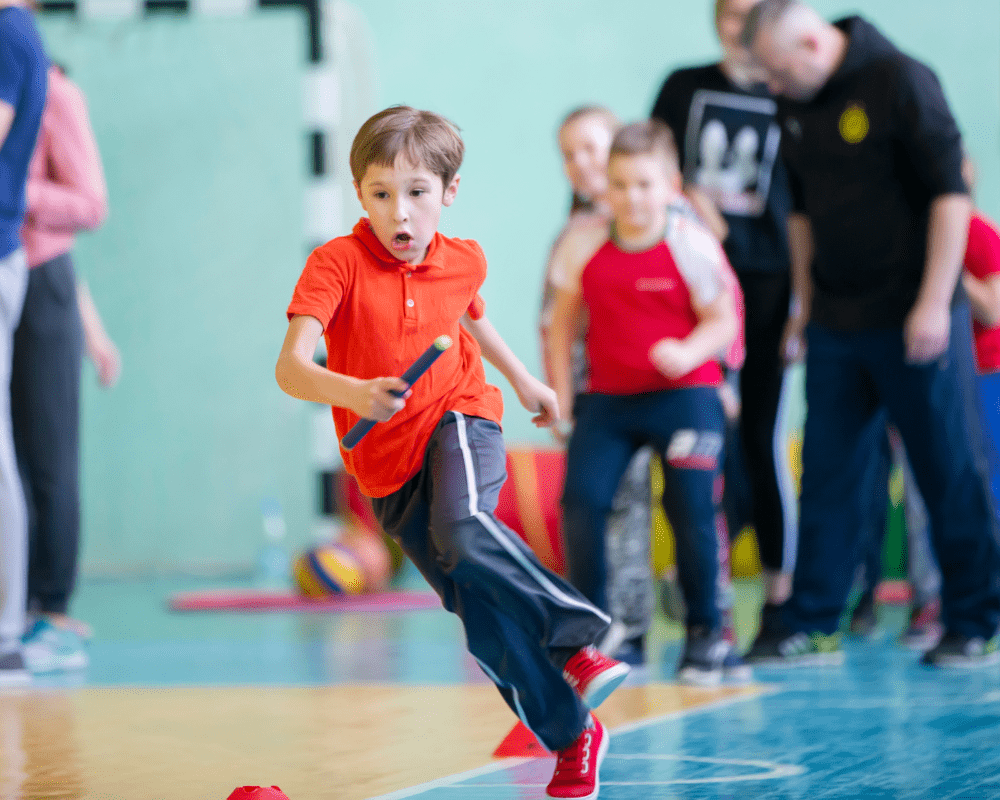
Teachers will need to allow time to practise specific skills and events in Physical Education lessons in preparation for the big day.
Classes may enjoy making Sports Day posters, to advertise the event, which can be displayed in and around school acting as visual reminders.
2. Consider Available Space and Safety
Throwing events are usually a favourite Sports Day Activity. A Multi Use Games Area (MUGA) is the perfect place to test throwing skills safely. MUGA enclosures are built from rigid mesh fencing with strong rebound panels. Items such as balls, shot puts and javelins will be easy to collect so that events can continue in a timely and organised manner.
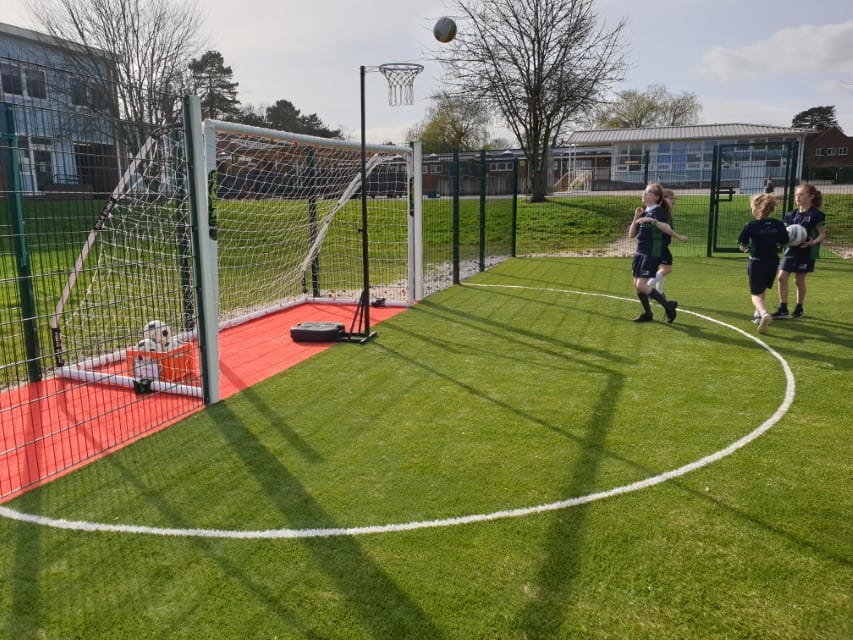
A MUGA pitch allows plenty of space for children to practise throwing techniques and equipment can be used safely, away from other children or spectators.
It is useful to provide staff with a simple map of the sports day events layout. Teachers need to know where their class will start and the order of events.
3. Carefully Structure the Day
There will be variation in events between schools depending on factors such as available space and equipment. Some schools may choose more traditional events such as a ‘tug of war’ or ‘welly wang’ which are part of their school history.
Depending on the size of your school, sports day may be split into different key stages or class groups. Some settings may have children taking part in a circuit of sporting challenges or children may be spectators whilst waiting to race.
Some schools may decide to create a sports day theme such as ‘Countries’ or ‘House Teams’ where children wear different coloured t-shirts and are split into mixed age teams fostering a sense of collaboration.
Don’t forget to build in breaks to a Sports Day Timetable. If children are taking part in an activity circuit it is a good idea to take into account recovery times between events and to include a rest station where children can grab a drink.
It may also be worth considering shade and planning for certain events to take place under a Sail Shade.
A PTA stall selling drinks and ice lollies is a great way to keep everybody cool and also helps to raise school funds.
4. Choosing and Planning Events
One of the key elements of a successful sports day is choosing a range of events that cater to the interests and abilities of all pupils.
When considering events aim for all children to be active, to feel included and to have fun. There should be something for everyone to enjoy and excel at throughout the day.
Early Years and Key Stage 1 Events
- Egg and Spoon Race – if the egg is dropped, stop and retrieve it before carrying on the race. Races can be made harder by adding different obstacles for the children to avoid or made easier by having larger spoons/smaller eggs.
- A Running Relay – teams can work together to retrieve and deposit beanbags.
- Target Throw – Use buckets, hoops or spots allowing children to score points based on accuracy/distance.
- Hula Hoop Ring Toss – over cones.
- Balancing Activities – Walking whilst balancing a beanbag on a racket/head.
- Obstacle Race – Pupils can jump, step and climb over Get Set, Go! Blocks or a Trim Trail.
- Use a Hopscotch Playground Marking and record the fastest times.
Lower Key Stage 2 Events
- Sack Race
- Speed Bounce – How many times can pupils jump over the Speed Bounce Mat? Both feet must land for the jump to count.
- Water Relay (great for hot weather!) - Children spread out in a line along the track and the child at the front of the line fills their cup with water from the bucket which they carefully pour into the cup of the second child. Children continue to pass water in this way until it reaches the child at the end of the line who empties their cup into the empty bucket. This child runs to the front of the line to fill their cup with water to begin the process again. The race is over when the empty bucket reaches the fill line.
- Through the Hoop Relay Race – Children will race down the track stopping to enter a hoop which must be lifted over their heads and placed back down onto the ground. The team with all members sitting down on completion of the race are the winners.
- Shutte Run between two cones – how many times is each cone touched in 20 seconds?
Upper Key Stage 2 Events
- Running Long Jump
- Throwing a Foam Javelin
- Football Dribble Race
- Skipping Race
- A Timed Netball Shooting Challenge
- Hurdle Relay – Add challenge to sprinting races by including small obstacles for children to jump over.
- Bowling – Using an underarm technique children compete to roll their ball closest to a target line.
Take to the Track!
An Artificial Grass Daily Mile Track is the ideal place for the classic Sports Day event – the 100m sprint! A Solar Powered Stop Watch on Posts allows budding athletes to keep track of their fastest times before the big day!
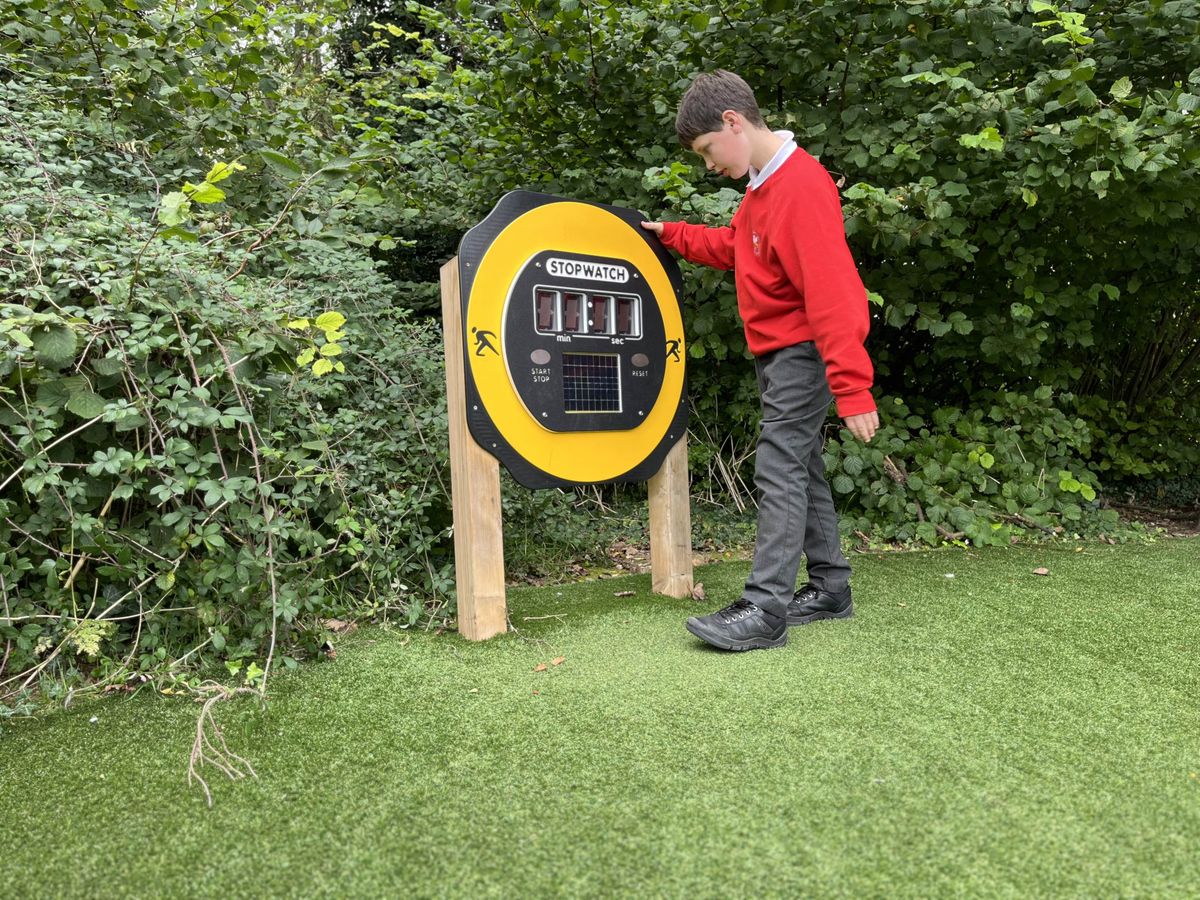
A three-legged race may prove to be popular, testing children’s coordination and communication skills and a fancy dress race is always a big hit!
Children must race along the track stopping to put on an item of clothing (bib, shorts, sunglasses, wig) placed at different intervals such as 10m, 15m, 20m and 25m along the track. The first child to cross the finish line wearing all items of the fancy dress costume is the winner!
5. Think about the Opening and Closing of Sports Day Activities
An opening ceremony can create a fun and uplifting atmosphere to begin Sports Day. If put into teams, pupils can enter wearing a coloured t-shirt to represent their colour team, house or country. Music can be played and children can carry flags ready to cheer on their team.
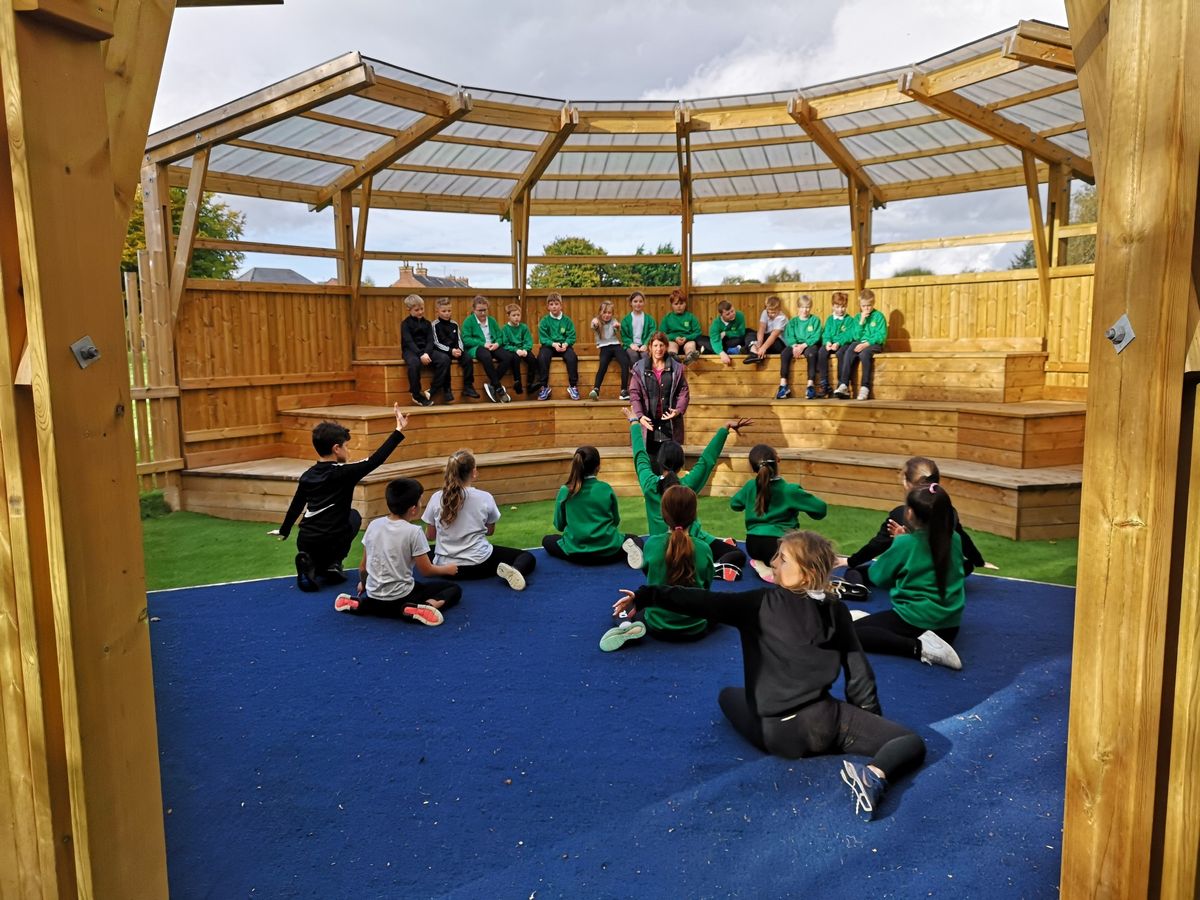
A whole school/key stage warm up before events begin and a simple dance which can be performed by all, at the end of the event, helps everyone to feel included and creates a lively atmosphere.
6. Include All Children
For some children performing sporting events in front of a crowd may lead to feelings of anxiousness whereas other pupils thrive in a competitive environment.
Important, active roles can help some pupils to feel respected, engaged and included.
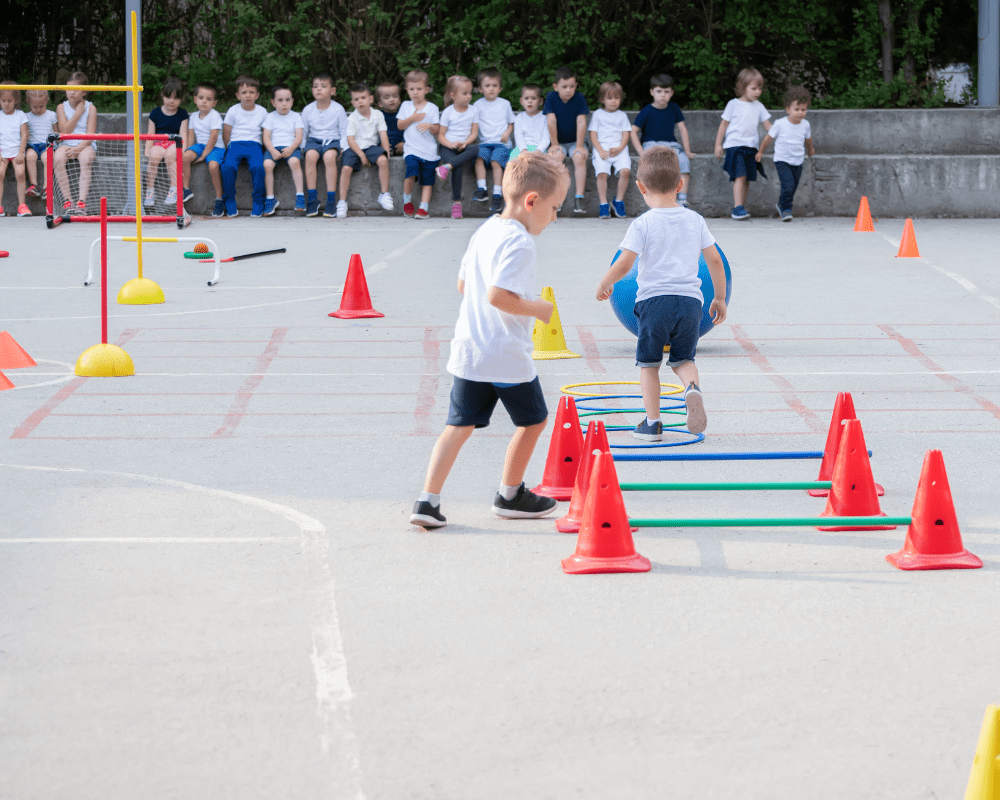
Alongside taking part, pupils can be given the role of sports leaders which will involve distributing equipment, organising teams and taking scores. Some children may want to form part of a media team, taking photographs/videos and holding interviews.
Schools may opt to have a carousel of activities alongside more competitive races. Pupils can aim for personal best performances during carousel activities in a less pressurised environment.
7. Support SEN Learners
Schools will need to carefully consider the social and emotional needs of all learners to ensure that sports day is enjoyable for all.
Small adaptations can make a big difference to SEN pupils. Some students may benefit from having an adult run alongside them when racing or may like to receive a reward such as a sticker which can be presented to all runners at the finish line.
.jpg)
It can be useful to provide visual cards next to each activity which help children to recall what to do. During races, distances can be altered by moving the start/finish line or equipment can be modified such as using a beanbag instead of a ball for an egg and spoon race.
Surfaces will need to be thought about as wheelchair users may need to be on the playground rather than the school field.
For some children with SEN, familiarity will be key. It may be useful when practising events to try to do them as they will happen on the day. Perhaps showing videos from previous Sports Days may help children to prepare. If parents are fully informed and involved, they can practise events at home and some children may be more likely to join in on the day if staff members are participating and having fun too.
8. Hold an Awards Assembly
To celebrate children’s involvement in Sports Day schools may decide to award a range of certificates and awards. Awards may be given for Best Jumper, Best Thrower or Best Individual Event such as 100m sprint, standing long jump etc. Perhaps all children from the winning class, house or themed group will be awarded, having collected the most points.
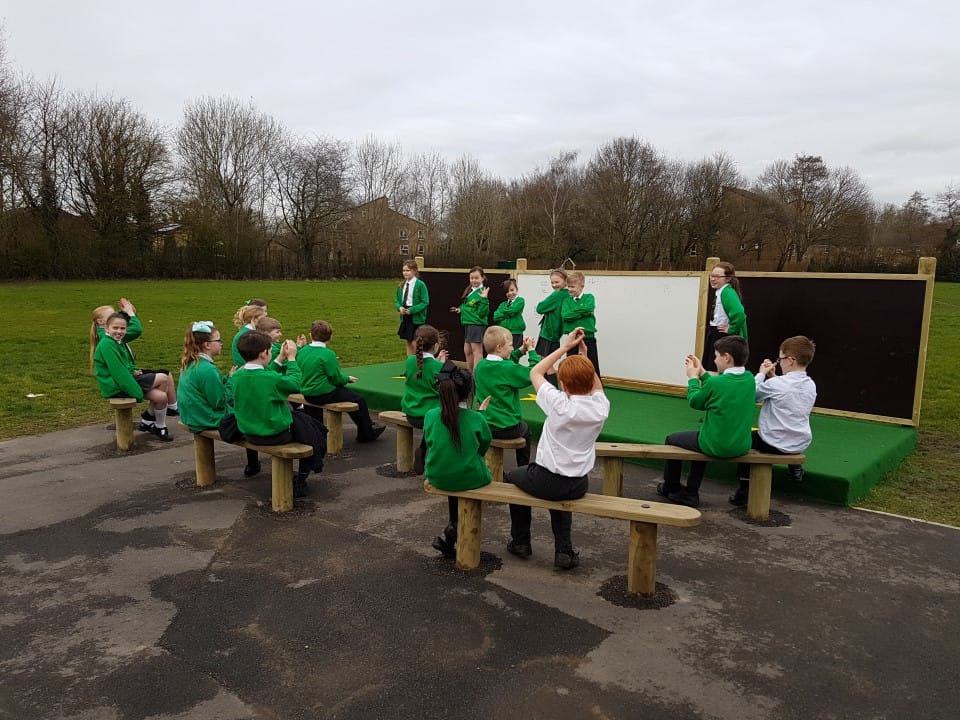
It may also be possible to award a range of certificates celebrating children’s wider social and personal skills such as Most Sportsmanlike, Best Leadership Skills, Most Enthusiastic, Most Determined or Most Helpful for example. This shows children that effort is celebrated as much as achievement.
Sports Day provides an opportunity to teach healthy sporting behaviours such as kindness, politeness, respect and playing fair. Sports Day can also show that healthy competition is a part of school life and teaches children to cope with and manage winning and losing.
Make Sports Day 2025 Unforgettable
Pentagon Play hope that your Sports Day 2025 will be one of the highlights of the school year where the whole community comes together to get active and have fun.
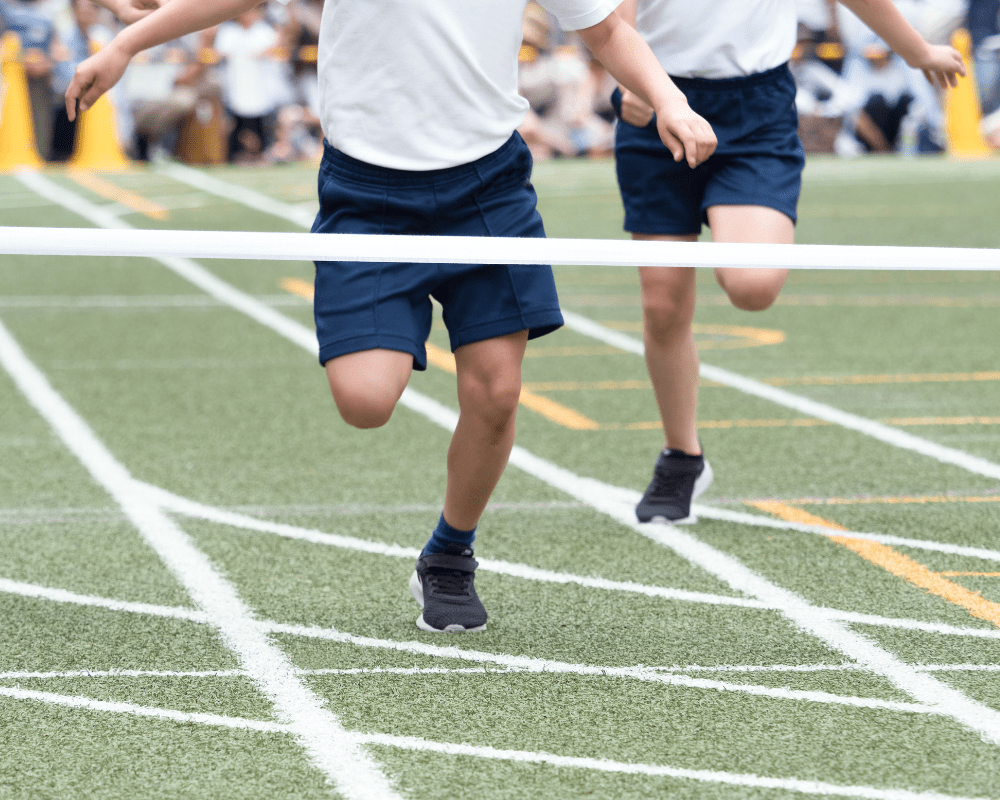
As the UK’S Number 1 School Playground Equipment Specialist we can help to create the ultimate sporting space in your school where children will be introduced to the benefits of sport and active play from a young age.
